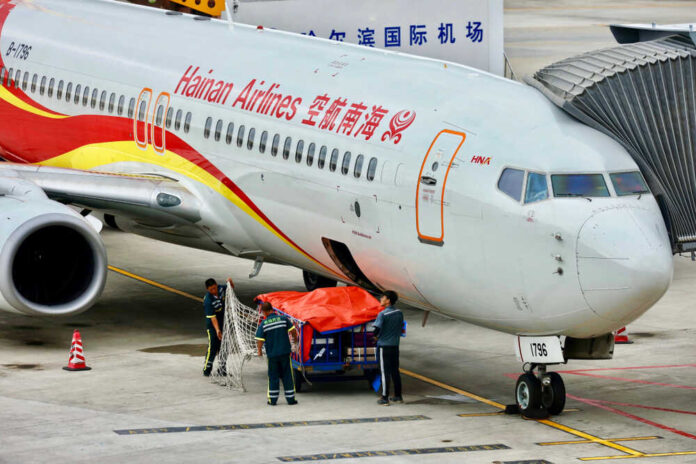
In recent years, China’s aircraft industry has experienced significant growth, propelling it to a prominent position in the global market. Meanwhile, American aerospace giant Boeing has faced challenges and missed opportunities, allowing its rival Airbus to widen its lead in China.
Around the margins, a Chinese-made plane starts reducing import needs, especially if they start reducing its foreign part composition too.
The next phase, once more mature, would be to export it throughout BRICS+ countries.
— Lyn Alden (@LynAldenContact) June 17, 2023
These developments have reshaped the dynamics of the aviation industry, as outlined by a timeline of key events. According to the United States 2021 Export Report, China’s burgeoning aircraft industry is gaining traction.
The account showcases China’s increasing prominence in the global export market, with the country making significant strides in multiple sectors. President Biden’s energy policies, unveiled in response to environmental concerns, had far-reaching implications for American exports.
These policies, if implemented, were predicted to hamper the petroleum products sector, which accounted for a substantial portion of the United States’ total exports. China’s ascent in the aircraft industry further reshaped the global aviation landscape. In September 2022, Boeing suffered a setback when it lost a significant 40-plane deal.
This blow came after a substantial order of nearly 300 Airbus aircraft, worth approximately $37 billion, was placed by China in July. In April 2023, Airbus, Boeing’s main competitor, made a major move to solidify its dominance in the Chinese market.
During a state visit by French President Emmanuel Macron, Airbus announced plans to establish a second final-assembly line in China. The agreement, witnessed by Chinese President Xi Jinping and President Macron, aimed to cater to the projected 5.3% annual growth of China’s air traffic over the next two decades.
Airbus, recognizing China’s immense potential, anticipated a soaring demand for aircraft. The company predicted that China would require approximately 8,420 passenger and freighter aircraft by 2041, representing over 20% of the global demand. With these projections, Airbus positioned itself to capitalize on the robust growth of China’s aviation sector.
Amidst these developments, concerns regarding the US dollar’s stability and trustworthiness emerged. As Brazil’s president Luiz Inácio Lula da Silva called for an end to US dollar trade dominance, discussions surrounding alternative currencies gained traction. However, doubts were cast on the viability of these alternatives, given the lack of trust in China’s currency due to capital controls and limited freedom of speech.
Looking ahead, industry observers anticipate further growth and dominance from China’s aircraft industry. While Boeing grapples with challenges and missed opportunities, Airbus solidifies its foothold in the Chinese market, capitalizing on the country’s soaring demand for aircraft.

















